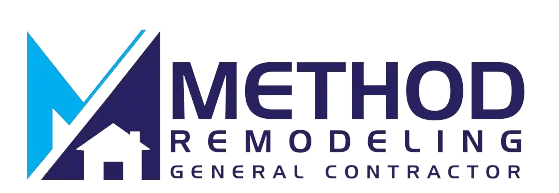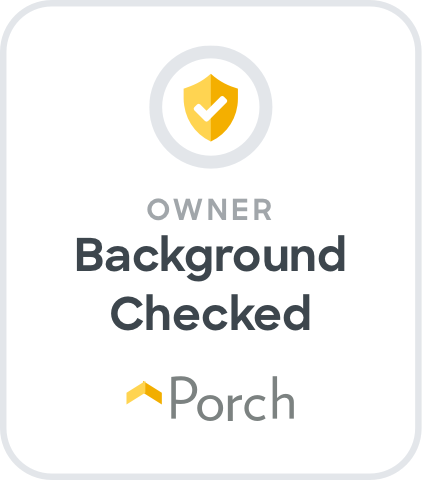FAQ’s
Traditionally, financing home renovations can be accomplished through a Home Equity Line of Credit (HELOC), which allows borrowing against the equity in the property. However, this option may not be feasible for new homeowners who have not had the opportunity to build up significant equity in their property.
RenoFi offers a unique solution for such individuals, by providing access to financing based on the anticipated After Renovation Value (ARV) of the property. This allows borrowers to secure financing against the potential future value of their property, following completion of the renovation works
You borrow up to $500,000 or at least $25,000.
RenoFi offers a streamlined and efficient process for obtaining financing for home renovation projects. To initiate the process, it is necessary to determine the desired loan amount. To assist with this, it is recommended to schedule a renovation estimate and request a Scope of Work from a Method Remodeling project manager. This document will outline the comprehensive cost of the proposed renovation project. Subsequently, interested individuals may reach out to ben@renofi.com to express their interest in obtaining financing. The necessary income verification documents will be required, and upon qualification, the loan funds will be directly deposited into the individual’s designated bank account.
Planning & budgeting: Generally, this is where we will figure out what specialists will need to be involved (i.e.: an architect), how much the project will cost, and how long the project will last. A project manager from our team will walk you through this entire process and ask all the necessary questions to create a clear scope of work & estimate for the project.
- Order finish materials: after you and your project manager have a scope of work created, this is a good time to start shopping for and ordering the finish materials needed later in the process. The reason why it’s best to do this process before the next steps is because big box stores and material suppliers are having a 2 – 3 month backlog on order fulfillment.
- Acquire engineering or architectural plans: not all project will need plans. Simple ‘aesthetic only’ renovations only require an over the counter building permit to proceed. A rule of thumb to determine whether your project will require plans is if it involves removing or reorienting any walls regardless of whether they’re load-bearing or not.
- Acquire building permits: this is where we, the remodeling company, would file the necessary paperwork with your local building department to get approval to start work. Note that your renovation company can’t start any physical construction until building permits have been granted by your local building department.
All licensed home renovation companies or general contractors should not begin work unless permits have been granted by the city. If your contractor is willing to work without permits, that’s a red flag. If your home is found to have unpermitted renovation work being done, your building department can issue fines or make you redo the entire project legally. - Demolition & removal: with permits in hand, we’ll begin removing the old and unwanted to expose the structure of the home.
- Framing, plumbing, and electrical: with the ‘skeleton’ of the home exposed we’ll start building/installing the necessary framing, plumbing, electrical, and/or HVAC; think of this as putting in the internal organs of the home.
- Finish work: With the organs in place, we’ll finish off the project by installing the insulation, drywall, flooring, tilework, appliances, painting the walls, etc.
- Inspections: Inspections typically happen throughout the process depending on the complexity of the project. It’s impossible to say when all the inspections will be but typically, there are inspections after framing, plumbing, and electrical, then once more when the project is deemed complete by your project manager.
As the homeowner, your home renovation plan should focus on 2 main things: the finish materials and appliances. Ordering the finish materials and appliances are generally not included in the scope of work unless you negotiate it into the contract. But as part of standard practice, your home renovation company will tell you how much of each material the project will need. For example, your project manager should tell you how many square feet of flooring material you’ll need to buy.
On your plan, make sure you answer each of these questions:
- What finish materials are needed? (LVP flooring,tiles, outlet covers, door handles, doors, paint, etc.)
- Quantity needed?
- Where to buy?
- Can the supplier deliver to address? If not, arrangepick up with Project Manager.
- When will the materials be delivered or ready for pick up?
Pro tip: buy 10% extra for potential mistakes.
No. The quote you receive covers the cost of labor, rough materials, and installation of standard materials. So you’ll have to budget separately for the appliances and finish materials you want.
Generally speaking, rough materials include the lumber products, insulation, fasteners, electrical components, plumbing components, drywall, and siding.
We separate the cost of finish materials because we want you to be able to shop around for the materials that best fit your aesthetic. To get an idea of how much we charge for our projects, explore our portfolio. On there, you’ll be able to see the price of each project and how long it took.
Our advice, don’t try to estimate it yourself unless you’re also planning to do the work yourself. Each home renovation company works at different price points so you’ll never get a clear idea if you try to estimate the work yourself. Anyway, we offer free estimation services so why not just book a free estimate.
There are a variety of financial products available on the market from traditional HELOC loans to easy but expensive unsecured loans. If you’re doing the renovations to improve your standard of living or for other personal reasons, we recommend going with a HELOC loan through Renofi or your current mortgage broker. HELOC loans will offer you better interest rates and for longer terms. If you’re renovating your home to quickly sell it for a return on your investment, then an unsecured or personal loan through SoFi might be a good fit. (Disclaimer: consult with a professional tax or financial adviser. We are neither of those.)
A rule of thumb is 1 month for every 100sqft. This accounts for the time needed for planning, permitting, and construction. Due to worldwide logistics issues, the materials might extend this timeframe so ordering your materials early is key to a quick turnaround.
Our team will acquire all the necessary permits, engineer plans, and architect plans if applicable to your project. You are more than welcome to do it yourself if you prefer to work with a specific architect/engineer or want to be more involved with the process.
The cost to acquire plans and permits are typically not included in the quotes we provide because each city building department have different pricing. That being said, when the project manager you’re connected with becomes more familiar with your project you can ask them to include the cost of permits in the quote they give you.
Not always. You will only need architectural plans or engineering plans when you’re moving or removing walls. Once your project manager is familiar with the ideas you have for your remodeling project, they will be able to tell you right away if an architect or engineer will need to get involved.
Yes. Our offices are located in Concord, San Jose, and Grass Valley. Our crews and project managers are all in-house and we all live in and around the areas we service.
The difference between each contractor is the license they carry and what each license allows them to do. General contractors carry a class B license which essentially allows them to take on a project that involve 2 or more unrelated trades. Other contractors carry trade specific licenses that only allow them to do work that is strictly within their trade. A good example of this is a C-10 electrical contractor. A C-10 license holder is only allowed to “[place, install, erect or connect] any electrical wires, fixtures, appliances, apparatus, raceways, conduits, solar photovoltaic cells or any part thereof, which generate, transmit, transform or utilize electrical energy in any form or for any purpose”. For a full list of contractor licenses and what they can do, visit this CSLB link.
Each project will have a unique timeline associated with it so it’s best you call in and tell us a little more about the project so we can give you a more accurate estimate.
If you’re looking for a ballpark average, bathrooms typically take us 4 weeks, kitchens take 8 weeks, additions take 14 weeks, and building an ADU takes 4 months.
Our team will acquire all the necessary permits, engineer plans, and architect plans if applicable to your project. You are more than welcome to do it yourself if you prefer to work with a specific architect/engineer or want to be more involved with the process.
The costs to acquire plans and permits are typically not included in the quotes we provide because each city building department has different pricing. That being said, when the project manager you’re connected with becomes more familiar with your project you can ask them to include the cost of permits in the quote they give you.
Yes. Our offices are located in Burlingame . Our crews and project managers are all in-house and we all live in and around the Bay Area.
Yes, we can come in and finish an ongoing project if you are unhappy with the contractor you are working with.
We cannot fire a contractor for you but if you have already requested that the contractor stop working for you, then we can come in and would be more than happy to finish the project.
Yes, we are. We carry a Class B – General Building Contractor license, carry General Liability insurance coverage of up to $2,000,000 and provide worker’s compensation to our staff. You can view all this information on the CSLB website.
Payments for a remodeling project are due whenever each stage of the predefined scope is completed. The duration of each stage of work is unique for each project. We prefer to accept payments in check or cash.
Each project will have a unique timeline associated with it. But if you’re looking for a ballpark average, bathrooms typically take us 4 weeks, kitchens take 8 weeks, additions take 14 weeks, and building an ADU takes 4 months.
Our team will acquire all the necessary permits, engineer plans, and architect plans if applicable to your project. You are more than welcome to do it yourself if you prefer to work with a specific architect/engineer or want to be more involved with the process.
The cost to acquire plans and permits is built into the quote your project manager will give you during your onsite estimate.
No. The quote you receive covers the cost of labor and rough materials. So you’ll have to budget separately for the appliances and finish materials you want.
Generally speaking, rough materials include lumber products, insulation, fasteners, electrical components, plumbing components, drywall, and siding.
Yes, we can come in and finish an ongoing project if you are unhappy with the contractor you are working with.
We cannot fire a contractor for you but if you have already requested that the contractor stop working for you, then we can come in and would be more than happy to finish the project.
Yes, we are. We carry a Class B – General Building Contractor license, carry General Liability insurance coverage of up to $2,000,000 and provide worker’s compensation to our staff. You can view all this information on the CSLB website.
Payments for a remodeling project are due whenever each stage of the predefined scope is completed. The duration of each stage of work is unique for each project. We prefer to accept payments in check or cash.
Building an ADU starts off with getting blueprints from a licensed architect and then getting those plans inspected by the governing county/city building inspection department. Once the plans are approved, we can give you a cost and time estimate for the construction.
Typically, ADUs take 2 months per 1000 sq. ft. all of which is subject to change if the project is uniquely complex.
Determining where you can build an ADU will depend on the requirements of the governing building inspection department. Typically, you can build an ADU in your backyard, front yard, above your garage, or convert your garage into a livable space.
If you need help determining where to build an ADU on your property, one of our project managers can come out to your property and scope out the best place to build along with giving you a price for the project.
The best way to know is by preselecting the finish materials you want for your ADU and getting a 3D rendering of your project. Preselecting the materials will allow our 3D designers to incorporate the exact materials you selected for your project so that the 3D rendering will look identical to the finished project.
Yes, the CSLB requires a general contractor to attain a permit for all projects over $500. Also, generally speaking, we will need to attain a permit for any work that involves tearing down or building a wall.
Typically, a 100 sq ft addition will take a month to two months to complete.
Yes. We can definitely do upper-level additions. It is worth noting that these additions typically cost 25% more than a ground-level addition due to added complexity, more materials used, and more labor hours.
Yes. Since additions typically involve building new walls or load-bearing structures, we need drawings from a licensed architect and structural engineer to begin our work.
If you’re unsure of how to determine what licenses or paperwork you need to begin an addition, schedule a discovery call, and our team will be more than happy to help you figure things out.
Contact Us:
Ready to transform your living space? Reach out to Method Remodel today and let’s discuss your next remodeling project! Our team of experienced professionals is dedicated to bringing your vision to life with precision and expertise. From kitchen and bathroom renovations to whole-house remodels, we’re here to make your dream home a reality. Contact Method Remodel now to schedule a consultation and take the first step towards your perfect home transformation.



